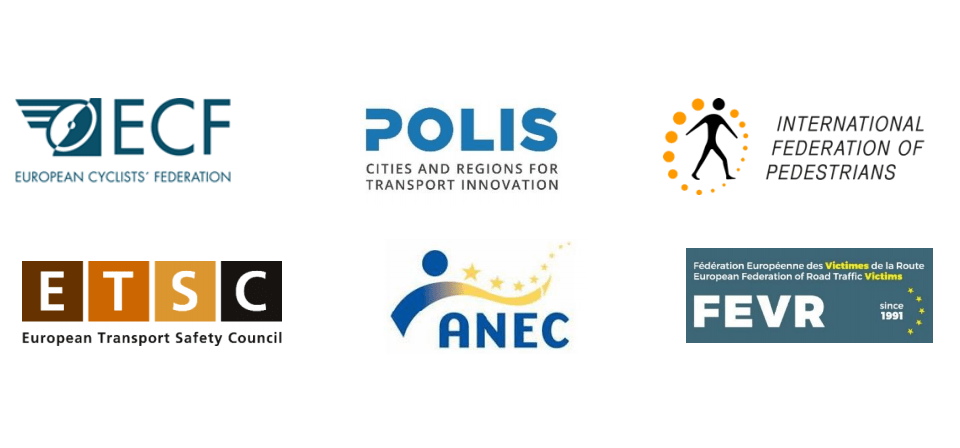Concerns on EDR and ISA Draft Delegated Acts
POLIS joins other leading Road Safety organizations in appeal for effective European regulations
As the European Commission develops delegated regulations for the General Safety Regulations (GSR), concern grows about how demanding these regulations will actually end up being. Reducing deaths and serious injuries in urban areas is a priority for POLIS members, and for that to happen European regulations can, and must, provide decisive support.
POLIS has been working together on this front with the European Transport Safety Council, the European Cycling Federation, the International Federation of Pedestrians, the European Federation of Road Traffic Victims, and ANEC (the European consumer voice in standardization), among others, following closely and actively trying to get key elements of these regulations to be viable for the industry, but demanding enough to make a real contribution to safety.
One item on the table is the regulation of Event Data Recorders (EDR). The current version of the draft regulation explicitly forbids this type of equipment from recording data on “location, date and time of events”, a serious blow to the purposes of the GSR, which had already narrowed down the purpose of this equipment to “accident research and analysis”.
In response, POLIS and its allies sent a joint letter to the Member States’ Representatives in the Motor Vehicle Working Group (MVWG), expressing their concern over this development. The group points out such technology is vital for improving research and crash analysis. The data EDRs provide will be increasingly important for understanding, managing and regulating mobility given the growing role of automation for road vehicles, and signatories to the letter caution that effective safeguards cannot be established without utilising this technology to its full capacity.
Apprehension is also articulated over Intelligent Speed Assistance (ISA), an in-vehicle system that supports drivers' compliance with the speed limit, using information on the position of the vehicle in relation to the speed limit in force at that particular location. In spite of several arguments to the contrary, the ISA draft regulation continues to allow for “cascaded warnings”, which research has shown are not effective enough.
The letter, which arrives ahead of the Motor Vehicle Working Group, and follows previous criticism of ISA regulation, further calls on Member States’ Representatives to require the information and data on each of the warning functions to also be provided separately, in order for any differences in performance between the different warning functions to be identified, and recommends adding a provision requiring the European Commission to publish the information received.
The joint letter, meeting, brings together voices from across the sustainable mobility field including POLIS, European Transport Safety Council (ETSC), European Federation of Road Traffic Victims (FEVR), International Federation of Pedestrians and European Cyclists Federation (ECF).
Read the full letter here, or in the documents below.
For more information, contact: pgouveia@polisnetwork.eu
